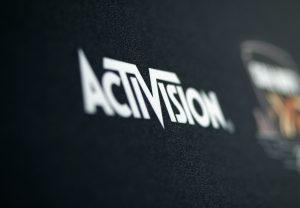Progress in the technology and gaming world is often marked by major acquisitions and mergers. A recent example of this is Microsoft’s planned acquisition of video game publisher Activision Blizzard. However, such major deals often face regulatory scrutiny and challenges, as is the case with this acquisition. As the tech giant moves closer to acquiring Activision, it has offered to make a minor divestment to appease the UK’s antitrust watchdog.
Microsoft’s Proposal to the UK’s Regulatory Body
Tech giant Microsoft is reportedly proposing a “small and discrete” divestment to the UK’s Competition and Markets Authority (CMA) to help push its acquisition of Activision Blizzard forward. According to sources referenced by CNBC’s David Faber, the specifics of the proposed divestment are unclear. Nevertheless, this strategic move could potentially see the deal close as early as the following Monday, before the termination deadline for the massive deal.
Activision’s Stock Response
In light of this development, Activision’s stock value has seen a significant rise, increasing by 11% to around $92 per share, closely approaching the takeover price of $95 per share set by Microsoft.
Litigation Standstill in the UK
In addition to the proposed divestment, Microsoft and the UK regulator have jointly requested the Competition Appeal Tribunal to momentarily halt litigation in the kingdom. The litigation was originally set for a July 28 trial. This pause is meant to give Microsoft and Activision the opportunity to work on proposals that could address the CMA’s concerns.
The CMA has reportedly expressed readiness to consider any proposals from Microsoft that could potentially restructure the deal in a way that alleviates its concerns. A spokesperson from the CMA indicated that Microsoft and Activision have agreed that a temporary halt in litigation in the UK would be in the public interest. As such, all parties have jointly submitted to the Competition Appeal Tribunal.
Victory in the U.S.
This development in the UK follows a significant victory for Microsoft in the U.S. A U.S. federal judge had earlier denied a preliminary injunction that the Federal Trade Commission (FTC) had been seeking to block the Activision deal. U.S. District Judge Jacqueline Scott Corley in San Francisco permitted the gigantic video game deal to proceed.
Expert Opinion
Chris DeMuth Jr, Partner of Rangeley Capital, in an interview with Seeking Alpha, expressed his views on Judge Corley’s decision. He said, “Judge Corley’s decision upon first reading is balanced, intelligent, correct, reasonable on the law and facts; it is respectful and doesn’t `spike the football in some way that would be intolerable to the FTC.”
The Road Ahead
While the recent developments indicate positive progress in Microsoft’s acquisition of Activision, there are still hurdles to overcome. The FTC now has the opportunity to bring their decision to the U.S. Court of Appeals for the 9th Circuit. Additionally, Microsoft and Activision still need to find ways to address opposition from the Competition and Markets Authority in the United Kingdom.
Microsoft’s Commitment
Throughout the process, Microsoft has remained committed to working creatively and collaboratively to address regulatory concerns. “We’re grateful to the court in San Francisco for this quick and thorough decision and hope other jurisdictions will continue working towards a timely resolution,” Brad Smith, Microsoft’s president and vice chair, said in a statement.
Activision’s Optimism

Activision Blizzard CEO Bobby Kotick also expressed optimism following the court’s ruling in the U.S. He stated in a memo to employees, “We’re optimistic that today’s ruling signals a path to full regulatory approval elsewhere around the globe, and we stand ready to work with UK regulators to address any remaining concerns so our merger can quickly close.”
Conclusion
The journey to the completion of the Microsoft-Activision deal is filled with significant regulatory obstacles, court hearings, and strategic maneuvers. How these hurdles are addressed will likely shape the future of the video game industry and affect other tech giants contemplating similar acquisitions. As the process unfolds, the global tech community will be closely watching the developments, eager to see the final outcome.
Note: The information in this article is based on reports and should not be taken as confirmed facts. The situation could change as more details emerge.

